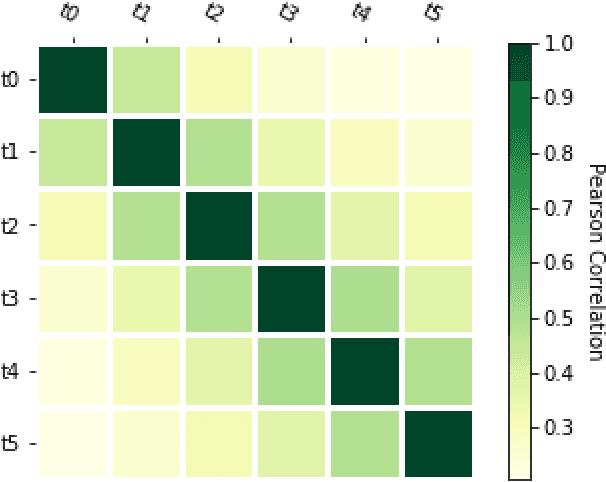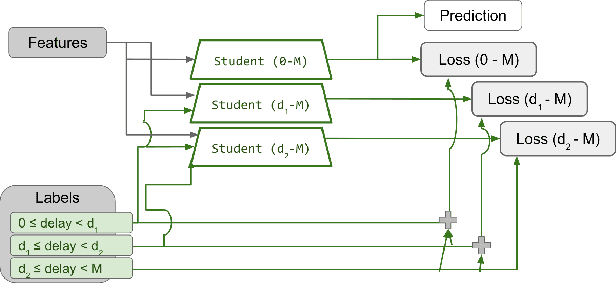Vinodh Krishnan
Handling many conversions per click in modeling delayed feedback
Jan 06, 2021



Abstract:Predicting the expected value or number of post-click conversions (purchases or other events) is a key task in performance-based digital advertising. In training a conversion optimizer model, one of the most crucial aspects is handling delayed feedback with respect to conversions, which can happen multiple times with varying delay. This task is difficult, as the delay distribution is different for each advertiser, is long-tailed, often does not follow any particular class of parametric distributions, and can change over time. We tackle these challenges using an unbiased estimation model based on three core ideas. The first idea is to split the label as a sum of labels with different delay buckets, each of which trains only on mature label, the second is to use thermometer encoding to increase accuracy and reduce inference cost, and the third is to use auxiliary information to increase the stability of the model and to handle drift in the distribution.
Nonparametric Bayesian Storyline Detection from Microtexts
Sep 24, 2016
Abstract:News events and social media are composed of evolving storylines, which capture public attention for a limited period of time. Identifying storylines requires integrating temporal and linguistic information, and prior work takes a largely heuristic approach. We present a novel online non-parametric Bayesian framework for storyline detection, using the distance-dependent Chinese Restaurant Process (dd-CRP). To ensure efficient linear-time inference, we employ a fixed-lag Gibbs sampling procedure, which is novel for the dd-CRP. We evaluate on the TREC Twitter Timeline Generation (TTG), obtaining encouraging results: despite using a weak baseline retrieval model, the dd-CRP story clustering method is competitive with the best entries in the 2014 TTG task.
 Add to Chrome
Add to Chrome Add to Firefox
Add to Firefox Add to Edge
Add to Edge